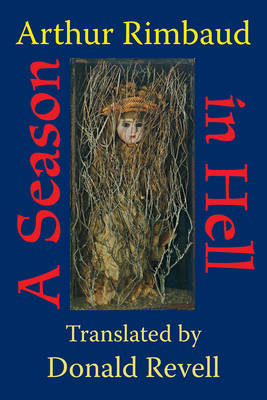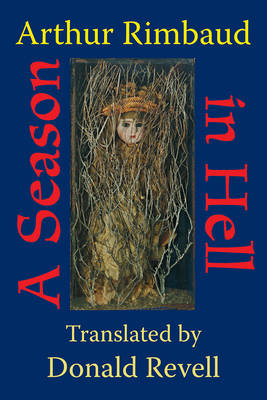
- Afhalen na 1 uur in een winkel met voorraad
- Gratis thuislevering in België vanaf € 30
- Ruim aanbod met 7 miljoen producten
- Afhalen na 1 uur in een winkel met voorraad
- Gratis thuislevering in België vanaf € 30
- Ruim aanbod met 7 miljoen producten
Zoeken
Omschrijving
In this new translation of Arthur Rimbaud--illustrious among the 19th-century symbolists and one of the most influential poets upon the modern mind--Donald Revell captures the child-like wonder and tortured, revelatory despair of these poems, which changed, in so many ways, how we think of what a poem can say and mean. Revell's choice of a most immediate vernacular gives the modern reader all the heady brilliance in Rimbaud's rebelliousness. Yet, as Revell explains in his essay "Outrageous Innocence, Innocence Outraged," which is offered as afterword in this translation of A Season in Hell, Rimbaud's rebellious sensuality was redolent with the oracular. Revell's essay offers the story of Rimbaud--his wildly creative youth, his years of breaking with all traditions of morality and decorum, his fame as the genius of French letters who is identified as one of the creators of free verse because of his rhythm experiments in prose poems. And Revell's essay places these poems in the larger historical narrative of the literature of rebellious youth that has molded much of our contemporary culture. Published with the French on facing pages, this translation will open many readers to the pleasure of reading this wild child who was remembered after his death as one of the masters of French poetry.
Specificaties
Betrokkenen
- Auteur(s):
- Uitgeverij:
Inhoud
- Aantal bladzijden:
- 104
- Taal:
- Engels
Eigenschappen
- Productcode (EAN):
- 9781890650308
- Verschijningsdatum:
- 1/04/2007
- Uitvoering:
- Paperback
- Formaat:
- Trade paperback (VS)
- Afmetingen:
- 152 mm x 229 mm
- Gewicht:
- 172 g

Alleen bij Standaard Boekhandel
+ 41 punten op je klantenkaart van Standaard Boekhandel
Beoordelingen
We publiceren alleen reviews die voldoen aan de voorwaarden voor reviews. Bekijk onze voorwaarden voor reviews.











